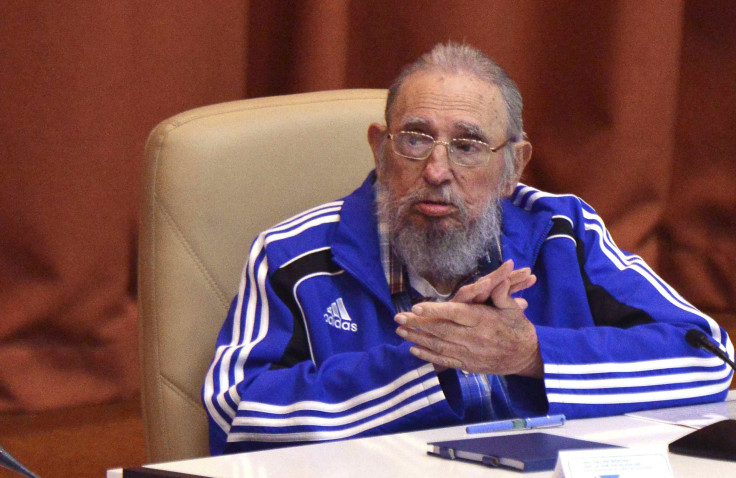‘I’ll Be 90 Years Old Soon’: Fidel Castro Makes Rare Public Speech Saying His Ideals Will Outlive Him

Fidel Castro didn’t give one of his famous (or infamous) hourslong speeches extolling the virtues of his Marxist-Leninist revolution, but what he said Tuesday was a reminder that even he realizes his days are numbered.
"I'll be 90 years old soon," Castro said during a rare public speech. "Soon I'll be like all the others. All our turns will come, but the ideas of the Cuban Communists will stay as proof that on this planet they work with fervor and dignity.”
Wearing a blue track suit, the founder of the one-party state was speaking at the latest Communist Party Congress in which the government reaffirmed his brother Raúl’s position as the party’s boss.
Raúl Castro, 84, has said he won’t seek to extend his role as the country’s party-appointed president when his current term ends in 2018. Miguel Díaz-Canel Bermúdez, a 55-year-old electrical engineer and current first vice president, is expected to succeed Raúl Castro.
Anticipating the end of the Castro era, Fidel used his speech to reaffirm his belief that Cuba’s revolutionary tradition would continue even as its founders die off from old age.
Fidel, once known for giving firebrand, hourslong speeches, addressed party members only briefly and his appearance was largely overshadowed in Granma, Cuba’s state newspaper, by news of his brother’s re-election by party leaders.
Fidel’s speech came at a time when relations between the U.S. and Cuba are starting to normalize following a meeting in December 2014 between U.S. President Barack Obama and President Raúl Castro. The two countries have begun taking small steps to forge closer trade and cultural ties.
But last month’s visit to Havana by Obama was ill received by party leaders, if not by the public. On Saturday party leaders reaffirmed that the U.S. is still an enemy state, one leader quipping that the visit was an ideological “attack” from a country that seeks to take control of Cuba.
Raúl’s position as the head of the Communist Party means he could still hold considerable power even after his assumed successor, Díaz-Canel, becomes president in 2018.
© Copyright IBTimes 2024. All rights reserved.





















